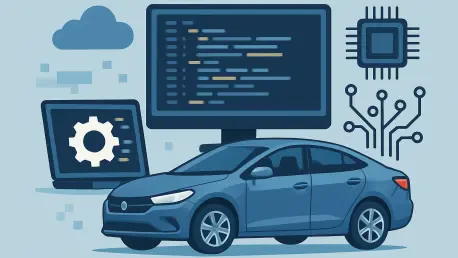In the rapidly advancing automotive industry, the significance of integrating cutting-edge software solutions has become increasingly apparent. As vehicles evolve from traditional mechanical configurations towards more sophisticated, software-defined systems, the need for adaptable, efficient software architecture is critical. This shift demands that manufacturers adopt strategies that meet consumer expectations, enhance efficiency, and reduce costs. The notion of incorporating open-source collaboration into automotive software development is gaining traction, suggesting that such a framework could potentially address many current challenges within the industry. With an eye on the future, stakeholders are considering whether open source can indeed revolutionize software-defined vehicles (SDVs), transforming how software is developed, shared, and implemented across various automotive platforms.
The Case for Open-Source Development in Automotive Software
A key inefficiency within the current software development model in the automotive sector lies in its proprietary nature, which often leads to duplicated efforts and inflated costs. Original Equipment Manufacturers (OEMs) and Tier One suppliers frequently find themselves investing resources in creating and maintaining software solutions independently, even for components and features that do not serve as direct competitive differentiators. This siloed approach results in unnecessary spending and delays in technology adoption. Open-source software development offers a compelling alternative by allowing companies to focus on core differentiating features while leveraging shared resources for non-unique aspects. This model has proven successful in other industries, such as tech and cloud computing, where collaborative platforms have resolved common challenges through collective innovation. The potential for open-source collaboration to streamline processes, enhance interoperability, and foster innovation suggests it could significantly impact the automotive world by reshaping the development and deployment of SDVs.
The transformative potential of open-source methodologies is evident when considering the demands of modern electric and autonomous vehicles, which rely heavily on complex software ecosystems. With the shift towards these advanced vehicle models, the complexity and cost of developing individual, proprietary software solutions have increased substantially. As a result, automotive companies are experiencing significant pressures that can be alleviated through open-source strategies. By pooling efforts and resources, the industry can address these challenges more effectively, freeing up capital and intellectual efforts for enhancing vehicle capabilities and consumer satisfaction. Additionally, open-source frameworks can provide a more agile response to evolving regulatory requirements and technological advancements, further solidifying this model as a viable option for future automotive software development.
Leveraging Collective Innovation: Benefits and Challenges
Open-source collaboration in automotive software development offers numerous benefits, particularly in fostering innovation and reducing developmental costs. By sharing non-differentiating features and functionalities, automotive stakeholders can focus on developing brand-specific innovations, ultimately enhancing the consumer experience. Open-source platforms encourage a collective problem-solving approach, allowing for more robust and scalable solutions than those achieved through isolated efforts. This cooperative model also accelerates innovation by facilitating the rapid exchange of ideas and technological breakthroughs across the industry. By leveraging a broader pool of expertise, companies can overcome technical challenges more efficiently and effectively, thereby improving the overall quality and functionality of software within vehicles.
However, embracing an open-source model in the automotive industry requires overcoming certain challenges, particularly concerning governance and security. Effective governance is essential to define guidelines for software contributions and ensure that open-source projects are developed and maintained responsibly. Organizations like the Eclipse Foundation play a crucial role in providing the necessary governance structure for successful open-source collaboration. Through initiatives such as the Eclipse Connected Services Platform (ECSP), the Foundation enables OEMs to leverage pre-developed, non-differentiating features while maintaining flexibility for proprietary modifications. Additionally, the automotive sector must address concerns related to software security, reliability, and integration into existing systems. While open-source projects have a reputation for strong security through transparency and community testing, implementing rigorous security practices and validation processes is essential to maintaining consumer trust and meeting industry standards.
Embracing Open-Source Collaboration for Future Growth
The current software development model in the automotive sector is inefficient due to its proprietary nature, leading to repeated efforts and increased costs. OEMs and Tier One suppliers often independently create and maintain software, even for features that don’t provide a competitive edge. This siloed approach results in unnecessary expenses and hinders technology adoption. Open-source software development presents an appealing alternative, enabling companies to concentrate on core differentiating features while sharing resources for non-unique components. This approach’s success in tech and cloud computing shows its potential to address common challenges through collective innovation. Open-source collaboration could streamline processes, improve interoperability, and drive innovation in the automotive industry by reshaping how software-defined vehicles are developed and deployed.
This transformative approach is crucial given the increasing complexity and cost associated with electric and autonomous vehicles. By utilizing open-source strategies, automotive companies can alleviate pressure, allocate resources more effectively, and remain agile in response to evolving regulations.









